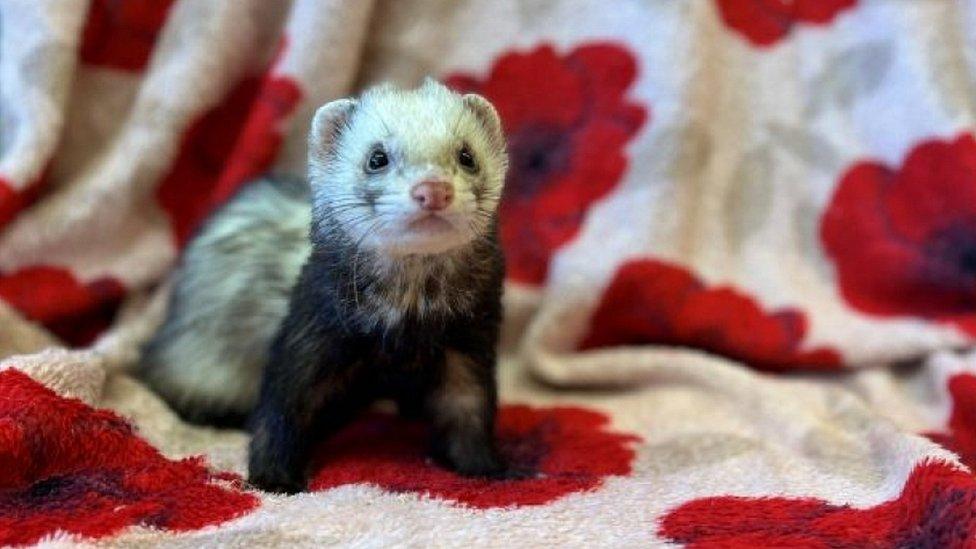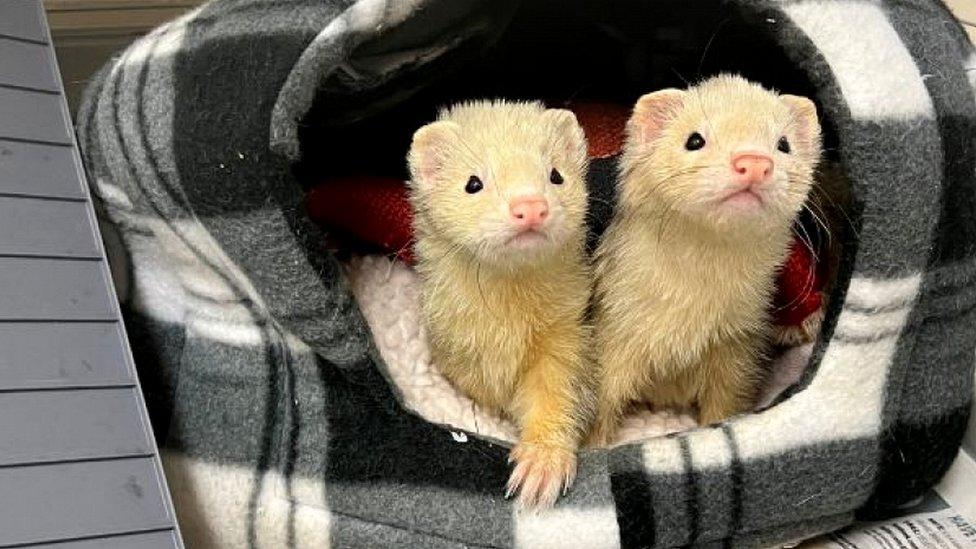Ferret influx sparks charity appeal for new owners
- Published

Gunther is one of the ferrets looking for a new home
An influx of ferrets to an animal rescue charity's rehoming centres has sparked an appeal for potential pet owners.
The Scottish SPCA is looking after about 60 of the creatures at its nine centres, many times more than usual.
It says a number of factors, including a lockdown reduction in hormone injections to take females out of season, has led to the rise.
The SSPCA website currently has more than 30 ferrets, external available for rehoming.
The charity's Aberdeenshire centre currently has nine ferrets, including a female - or jill - which has just had a litter of seven.
Robert Morrison, an animal care assistant at the centre, said "This is much higher than normal. We used to only see about six or seven ferrets maximum at any point throughout the year.
"Recently, we've had up to 15 ferrets at any one time, so we're seeing a huge increase in the recent months."

Brooke and Krystal are currently being looked after at the charity's Aberdeenshire centre
Mr Morrison said the creatures are also currently coming into season, leading to a rise in numbers.
He said: "A lot of the younger, cuter ferrets are finding homes and the older ones are getting moved out to make space for them."
Mr Morrison also said cancellations of face-to-face vet appointments due to Covid had played a part.
He said: "People getting ferrets 'jill jabs', which brings a female out of season, hasn't been happening as much over that time period.
"So people were finding it easier to let the ferrets be mated and have cute little ones or babies."
Ferrets were first domesticated more than 2,000 years ago.
Mr Morrison said the animals make "absolutely brilliant" pets.
He said: "They are very sociable animals, they really thrive on your interaction with them.
"They are also very smart animals and thrive on this kind of companionship with their owners."